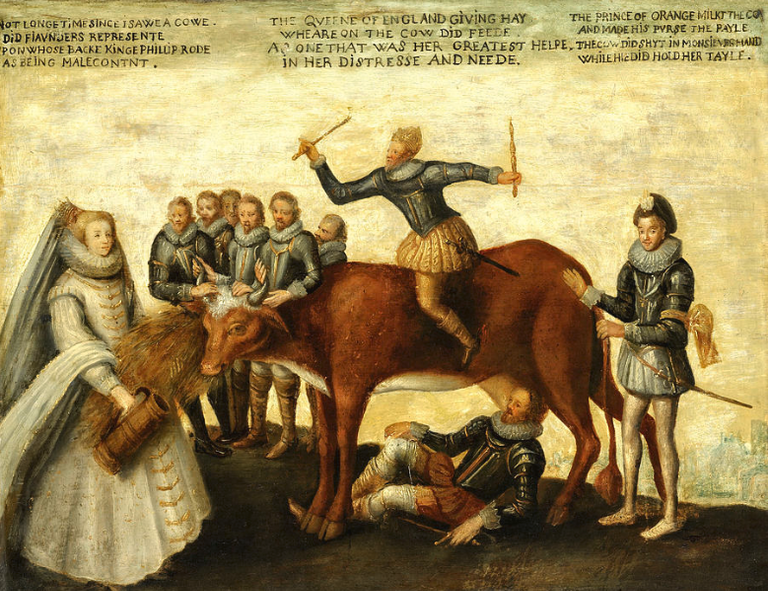Swim
A few years back, I was speaking to a girl about 18 years old when she mentioned that she worked at a popular local beach restaurant. "Neat," I said, "I'm heading to the beach today. How's the water? Is there any red tide?" (Red tide is a nuisance algae bloom that kills fish and gives humans an irritating cough.) She answered, "No red tide. There are a bunch of stingrays though." "Okay, I'll just do the 'stingray shuffle' and I'll be good," I said. (The "stingray shuffle" is the local jargon for entering the beach while sliding or shuffling your feet. Any stingray on the sand will feel the shuffle and move away. It's when we step directly onto them that they react with a sting from their barb.)
I went to the beach undaunted by stingrays. True, there was no red tide; if it's there, you can sense it as you approach the water, either by dead fish washed up or feel it in your throat. I waded in, the water was a warm but refreshing, then at thigh-deep, I dove in. Almost immediately, I felt sharp stinging sensations along my belly and sides. I opened my eyes underwater. The water was glass-clear and I could see well. What I saw was hundreds, thousands maybe of jellyfish and their dangling tentacles everywhere around me.

I stood up. I walked out of the water. I sat down on the sand. I was on fire all over my body from jellyfish stings. They say that you're urine is good for such stings. I wasn't going to piss all over myself...I let it sting itself out.
The next day I saw the girl again. I mentioned how I went to the beach and that she was right, there was no red tide. However, she was wrong about the stingrays. There were no stingrays, only millions of jellyfish and how they stung me near to death.
"Oh yeah, jellyfish, not stingrays," she said casually.
I could have strangled her.
This story is not about sea life or strangulation, it's about unintended consequences. I'd expected a refreshing swim in the ocean, unintendedly, I got smoked by invertebrates.
Ocean.xyz
Recently, Luke Dashjr, a true bitcoin OG, announced the new mining pool Ocean.xyz. It got immediate good press because it was purported to help decentralize mining of bitcoin. Apparently, any pleb could do it. Then, it got some bad press and accusations of censoring transactions. In short, Ocean doesn't like Ordinal inscriptions and seeks to weed them out, to not include them in blocks.
The arguments for each side follow:
Anti-ordinals
Ocean.xyz says that bitcoin Ordinal inscriptions are spam. They are not what bitcoin was envisioned to be at the start, they exploit an unforeseen use of the Taproot upgrade, they drive up transaction fees to ungodly levels making a "regular" sized tx impractical (no one will buy a $3 coffee and pay a $30 tx fee), they drive the block size to ridiculous sizes and bloat the chain. In short, ordinals are spam.
In one sentence: Ordinals clog the bitcoin blockchain with crap and fees.
Pro-ordinals
Critics of Ocean say, "Hold on there, Bitcoin is about freedom. Let's allow the free market to do whatever it does. Let the invisible hand of the market dictate things instead of someone like Ocean's hand meddling into things. It'll all work out in the end." Folks in this camp say that a fundamental tenet of bitcoin is that it is permissionless, that a transaction is valid if it pays the fee dictated by the market, this even if Ocean or whomever deems it to be spam or worthless.
The free market argument suggests: although you might say the monkey jpeg is worthless spam, the person paying the fee disagrees (else it would not be paid). And, anyone who buys that Ordinal disagrees also (else it would not be bought). If, in fact, that jpeg is worthless and no one wants it, the market will weed them out...people will stop minting them with their high fees because it makes no economic sense to do so. But, now, since fees are high, the market is saying that it does make sense to mint them, regardless of someone else's opinion.
A secondary component of the free market argument is innovation. Pro-ordinalites might point to future innovations that will ultimately deem this problem as obsolete. The trouble, as always with this, is our lack of imagination. Right now we cannot see what those possibilities are or what they one day might be.
And then, there's the freedom argument of the pro-ordinalites. They say that to censure out unwanted transactions is, in and of itself, wholly un-Bitcoin. Who is to say what is okay and what is not okay? Ocean? The CEO of Bitcoin? This is a dangerous road to go down. In a way, this simply circles back to the free market argument: allow ordinals and allow the market (and innovation) to work it out.
In one sentence: Bitcoin is freedom and ordinals are another way to interact with the blockchain and the invisible hand will work it out.
Intended consequence
So, Ocean.xyz has the intention of cleaning up bitcoin blocks...keeping them small, keeping silly Ordinal NFTs out, and keeping fees low.
The problem here comes down to game theory and the Tragedy of the Commons. If you don't know about the tragedy, here's a quick overview...
Back in roughly pre-1800 Europe and America, towns often had a "commons" somewhere nearby, often in the center of town. It was public land, commonly owned. The idea was that anyone who did not own land (the poor) could graze an animal on the commons or grow a vegetable garden. Consider grazing a milch cow in the commons. (Read the image's text below for hilarity.) A family might ponder whether to spend their hard-won money on a cow. Likely, their calculus would go as such, "A cow is expensive, but if we buy a milk cow, we'll have fresh milk and butter for years going forward. It's in our best interest to buy a cow." They buy it. Their neighbors, all 20 families, make the same decision and the commons soon has 20 healthy milk cows grazing. Everyone is better off.

However, our original family might look at their good fortune and then say, "We have milk and butter, but if we buy a steer, we can also have beef." They buy a steer. Then, by taking a loan, they buy a bull to breed with their cow and soon increase their herd. They also "rent out" their bull to other families for "services rendered" to other cows. This now four-cow family is clearly doing better. However, the tragedy is that each of the other 20 families has made the same decisions to increase their own herds. So, in a couple of years, the small commons is home to 80 head of cattle (and growing fast with new calves expected in the Spring). The grass has become over-grazed, trampled under hoof, and dead. At this point, no cattle can be sustained. By each family acting rationally in their own best interest, the entire ecosystem is destroyed. The cattle will die and any loans taken out cannot be repaid. All are worse off. This is the tragedy.
Images below generated from leonardo.ai using the prompt: cows bulls calves in center of medieval europe commons park village


Navigating the tragedy
Elinor Ostrom is a heavyweight in this field. She won what's called the "Nobel Prize in Economics" in 2009. The award isn't proof-of-genius (Paul Krugman had won the year prior...in Krugman's mind, the solution to the cattle problem would be to print grass). But, the award does also boast winners with legit economic minds (Friedrich Hayek, Milton Friedman). See winners list here.
Regarding Ostrom, I feel she's legit. She tried to solve the tragedy of the commons' essential question: "How can people act in their own best interest and not destroy the commons?"
In a way, this question was already answered by John Nash (the 1994 winner of the award). His "Nash equilibrium" essentially proves mathematically that rational people should not only act their their own best interest, but also in the best interest of the group going forward. In short, I should not get four cows, nor should anyone else in the community. If all 20 families get only two cows, our little commons can indeed sustain those 40 cattle. Then, we can raise and have cattle indefinitely. Yes, we don't have four cows today, but we will have infinite cows going forward. By sacrificing a bit now, we get more in the future.
But, how is this enforced in real life, Mr. Nash? Elinor Ostrom's work effectively concluded that local/communal management (as opposed to dictatorial regulation coming down from on high) was the solution.
Case study: consider the lobstermen (and women) of Maine. Consider a quaint and rocky bay famous for its lobster. The 20 lobster fishers go out each day and harvest their catch. Say they get 15 each, so 300 are brought to market. A selfish lobsterman might put out a thousand traps and harvest scores and scores. Obviously, this hurts the others' catches. Naturally, when the selfish man reveals his catch at the dock and market, the others would be unhappy. A second lobsterman might figure, "If he's doing it, I'm gonna do it too," and the next day there are thousands more traps in the bay. This goes on until the lobster population is wiped out. Then, the quaint rocky bay has zero lobsters to harvest, and worse, the bay is threatened from having any lobsters at all in the future.

Ostrom suggests that before the tragedy happens, the loberstermen would collectively get together and self-regulate. They would agree to set catch limits and likely set trap areas. They would set penalties on anyone breaking rules. Being a small and local community, these rules wouldn't even have to necessarily be written into law or code...social and economic pressure and shunning matters in such situations. A lobsterman with 1,000 lobsters might be effectively banned from the local market (a 1,000 dying lobsters is of no value), not to mention the side-eyed looks his wife gets around town.
Notably, Ostrom concluded that a centralized decree from, say, a national government, would fail. Such a law becomes unenforceable as cheaters see the incentive to circumvent it and then do. Local, self-enforcement is the only hope, Ostrom concluded.
Bitcoin and the tragedy
With Bitcoin, it's the same and it's different.
With Bitcoin, the tragedy of the commons is playing out. Bitcoin, the system, the blockchain, is the commons. It is there, owned by no one and controlled by no one. In a way, it is more of a commons than the commons-land in the center of the medieval village. At least that land was "owned" communally and controlled locally...the people could, in fact, have made rules to regulate it. (In a way, beginning in roughly the 1600s, they did regulate it by regulating it away. The "enclosure" movement put up fences and commons land became private land and the town commons waned away into history.)
Again, with Bitcoin, there is no controlling or regulating entity. So, anarchy, a lack of a controlling body, exists. As a result, a actors are available to do as they please, to act in their own best interest. Although it clogs the chain and drives up fees, human nature says people will do this.
Ostrom's "local regulation" wouldn't work with Bitcoin. Even though Ostrom said a centralized entity can't regulate the commons, there is no centralized entity with bitcoin anyway! Bitcoin is global, it's sorta anonymous, it's permissionless and thereby setting rules and guidelines is effectively against its ethos. All of these things undermine Ostrom's solution to the tragedy of the commons.
Nash's mathematics are still there...it's still in everyone's best interest to keep a functional chain working; there's an incentive, to not destroy the chain by making it unusable. But, even if 99% of us acquiesce to guidelines of "good behavior", there's an incentive for 1% to go ahead and get those four cows. The tragedy goes on.
So, Ocean and the unintended
Ocean decided to step in and begin to weed out things it deems as spam. Aside from one's views on Ordinals, for or against, I think there might be an unintended consequence if the Ocean-way catches on.
Currently, I think Ocean has mined only three blocks. That's not a deluge, but it's three. Suppose the movement catches on, maybe another pool takes a similar route, and the anti-ordinal mining pools get up to, let's say, 33% of the blocks being mined.
The intended consequence: reduce "spam" or clog in the blogs and reduce fees.
Possible unintended consequence: supply and demand does what it does. Like the honey badger, it doesn't care what you think.
In a way, miners are selling block space and we the bitcoin people are buying space in those blocks. People trying to mint Ordinals are also block space buyers. If 1/3 of the blocks are now off the market to ordinalites, that is a 33% reduction in supply of block space for them. The demand to mint is still there (the demand to buy Ordinals block space). It's the same, so the price naturally is now higher. If there was an order book for buying block space, it just changed with a lot of buy pressure on fewer blocks. The price, the fees, would increase.
I feel what would result is this: people doing non-Ordinal transactions would naturally try to get their transactions through in the cheaper, Ocean-style blocks. But, they would likely wind up with longer wait times (only 1/3 of the blocks are Ocean) or they would finally go ahead with the non-Ocean blocks (which are now even higher than before!).
Longer wait times, even higher fees.
Unintended consequences.
Solution
Ostrom's way won't work in the Bitcoin tragedy of the commons. Nash's way works mathematically, but freeriders make it so it won't work. (You've heard the phrase, "This is why we can't have nice things.")
I've seen that four-letter F word used a lot lately. Personally, I hope this doesn't come to a fork. A fork-airdrop where you'd suddenly get equal amounts of BTC-Ordinals (call it "BTCO") to match your BTC sounds nice in theory. But, I remember the BCH split (not to mention ETH and ETC and all the other BTC derivatives, oh my) and it was messy.
Not to mention, if an ETF or ETFs come through, which chain would the ETF go with? Would they each choose their own? Would they mix-n-match tokens in the fund. Can you imagine a legacy financial advisor trying to explain to his boomer clients how buying the BTC-ETF contains tokens from one blockchain but buying BTC-ETF-ORD has tokens from another.
I really don't want to see the community go through that kind of stuff again. At this time, we need our voices together rather than against one another.
I think the solution is time, free market, and innovation. Allow the free market, combined with the incentive to anyone to devise a solution, to work it out.
It will.

You ask, "What's Hive?" Watch the animation I made: The Hive Story Animation and you'll learn about this Web3 chain. The top benefits of the Hive blockchain: (1) no ONE person/group runs it, (2) YOU own and control your content, and (3) YOU earn the rewards that your content generates. Learn more or consider using my referral link to get your free account here and I'll support you as you begin. Alternately, you can see other sign-up options here. All my links: https://linktr.ee/crrdlx.
Posted Using InLeo Alpha
I myself have a great desire to go under the sea and see the world there, but I have not been able to do it due to fear..Must go and see all things.
I'd say that's a healthy fear. !LUV
djbravo, crrdlx sent you LUV. 🙂 (1/3) tools | trade | connect | daily
Made with LUV by crrdlx.